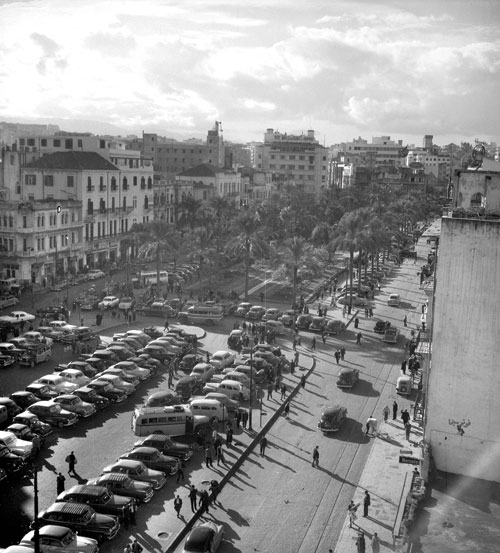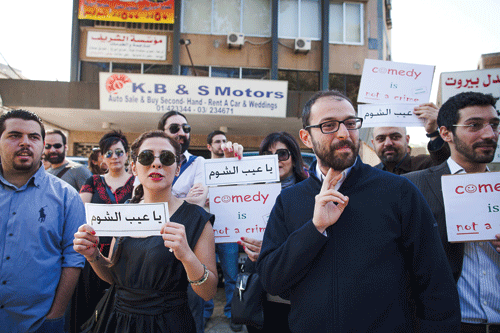Banking secrecy exceptions
Banking secrecy was lifted on 18 accounts in Lebanon last year according to the annual report of the Special Investigation Commission (SIC), an independent entity established 10 years ago by the Banque du Liban (BDL), Lebanon’s central bank, to fight money laundering. Of the 18 cases, five were referred from abroad and 13 were from domestic sources. In 2011, the SIC received 335 suspected cases, up from 245 in 2010 and 202 in 2009. Of the suspected cases, 100 were from foreign sources and 235 from local sources and the SIC investigated 285 cases. Counterfeiting, accounting for 13 percent of all reported cases, was the most common crime, followed by terrorism funding at 8.5 percent of reported cases, fraud of private funds at 6 percent, narcotics trade at 4.5 percent and embezzlement of public funds at 3 percent. Sixty five percent of the cases were not categorized. “Reporting entities were assessed via extensive on-site examinations and follow-up corrective measures were imposed,” according to central bank Governor Riad Salameh.
Eurobond oversubscribed
A $700 million Lebanese Eurobond issued last month was 30 percent oversubscribed, resulting in a boost to the finance ministry’s coffers. The first tranche of the Eurobonds brought in $600 million, up from the original plan to raise $350 million. It carries a 5 percent yield and matures October 12, 2017. The second tranche brought in $350 million as originally planned. It carries a 6.4 percent yield and will mature on April 27, 2026. Non-Lebanese accounted for 30 percent of the subscribers with the remaining issuance taken up by the local banks, holders of the majority of Lebanon’s hefty debt. Byblos Bank and Bank of America-Merrill Lynch were the lead managers on the Eurobond. The proceeds of this issue are to refinance $293 million and 115 million euros ($151 million) in Eurobonds which matured in March and April 2012, respectively. Lebanon’s finance ministry revealed earlier this year that it will be issuing $5 billion worth of Eurobonds and treasury bills to cover the public debt in 2012.
Qatar-Swiss mining mega merger
Qatar’s sovereign wealth fund, Qatar Investment Authority (QIA), has invested a whopping £1.7 billion ($2.7 billion) into Switzerland-based mining giant Xstrata. With a five percent holding, QIA now becomes Xstrata’s third largest investor after Glencore, the largest publicly traded commodities supplier, with a 34 percent stake, and asset manager Blackrock, with a five percent stake. This aggressive move comes ahead of a planned £23 billion ($36 billion) mega merger between Xstrata and Glencore and increases the chances of the deal tilting in Glencore’s favor. Aside from Blackrock, most of the top 10 investors are critical of the deal and want better terms from Glencore. Under the proposed deal, Xstrata shareholders would receive 2.8 Glencore shares for every share they own, but many shareholders want at least 3.6. Ivan Glasenberg, chief executive officer of Glencore and Mick Davis, CEO of Xstrata, are going on a global road show in the coming weeks to convince investors to agree to the “merger of equals”.
Egypt close to IMF loan
Egypt’s finance ministry expects to secure a $3.2 billion loan from the International Monetary Fund (IMF) by May 15, before a new president is elected to run the country at the end of June. However, the deal, which has already been delayed from March, faces a significant obstacle. The Freedom and Justice Party, the Muslim Brotherhood’s political arm that holds almost half the seats in the new parliament, is heavily critical of the IMF loan, and has suggested several other options, such as collecting overdue taxes or re-evaluating gas export deals. The party says it is not outright opposed to the loan, but wants either better terms or the creation of a new government — not due until after the presidential elections — to oversee the distribution of the funds. According to Egypt’s finance minister Mumtaz al-Said, “Egypt needs $10 billion to $11 billion in the next 18 months to bring back economic stability.” Egypt has hemorrhaged more than $20 billion in currency reserves since the February 2011 revolution, which overthrew former president Hosni Mubarak. Whether Egypt succeeds in securing the loan remained unclear as Executive went to print.
Kafalat loans drop
The loan guarantee company Kafalat gave out $33 million loans to small and medium enterprises in the first three months of the year, down 21 percent from the same period last year. The number of loans dropped 20 percent to reach 240. The industry sector accounted for 36.7 percent of the total guarantees; the agriculture sector took 36.3 percent of total guarantees, while tourism accounted for the next 20 percent of the guarantees. Geographically, Mount Lebanon accounted for the majority of borrowing, taking up 44 percent of the loans, followed by North Lebanon at 16.3 percent, Bekaa at 15.4 percent and South Lebanon at 10 percent. Beirut accounted for just 7 percent of the loans.
$100 million for MENA infrastructure
The International Finance Corporation (IFC), part of the World Bank Group, and the Islamic Development Bank (IDB) plan to invest $100 million in infrastructure projects in the Middle East and North Africa region. Each institution will be investing $50 million into the Arab Infrastructure Investment Vehicle, part of the Arab Financing Facility for Infrastructure (AFFI), an initiative led by the World Bank, the Islamic Development Bank and IFC. The AFFI assists in financing and technical issues for cross-border infrastructure projects and encourages governments and the private sector to contribute to the development of these projects. The purpose of the investments is to spur economic growth in the region. MENA countries need to invest $70 billion annually in infrastructure to sustain their growth rates, according to the IFC, which invested approximately $2 billion in the region in 2011.
Financing Tunisia
Qatar has agreed to lend Tunisia $500 million at an interest rate of 2.5 percent, to be repaid in five years. The Gulf state was one of the main foreign backers of the revolution which overthrew longtime president Zine el-Abidine Ben Ali and resulted in the Ennahda party coming to power in Tunisia in October last year. Earlier this year, Turkey opened a $500 million credit line to Tunisia, repayable over 10 years. The United States recently announced that it aims to help finance the economic recovery in Tunisia by providing “several hundred million dollars” of loan guarantees before the end of June, according to the US Department of the Treasury. The Tunisian economy is still struggling following the political upheaval that shook the country last year. The International Monetary Fund forecasts 2.2 percent gross domestic product growth in 2012 and 3.5 percent in 2013, while expecting the unemployment rate to drop 2 percent this year to 17 percent.
Aabar dumps Daimler
Abu Dhabi’s Aabar Investments, a government-owned company engaged in investing across sectors and countries, is reviewing its portfolio of overseas investments and intends to completely exit its investment in Daimler, as well as in the Formula One cooperation and Tesla Motors, the luxury electric carmaker, according to Germany’s Manager Magazin. Aabar acquired a 9 percent stake in the luxury carmaker by injecting 1.95 billion euros ($2.56 billion) in March 2009, which it reduced to a 3 percent holding in February after the surge in the price of the shares. The share price at the time of the investment stood at 20.27 euros ($27); as of 21st of April it was trading at 41 euros ($54), up 100 percent from the price that Aabar paid. Abu Dhabi National Energy (TAQA), an oil explorer and power supplier majority owned by the government, sold its 7 percent stake in Tesla Motors in April, making a profit of $113 million. In April, Aabar nearly doubled its stake in Dubai builder Arabtec to 10.45 percent.






